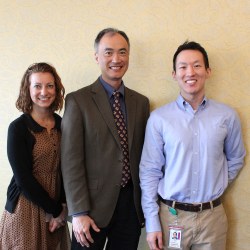- May 2024 (1)
- March 2024 (1)
- February 2024 (1)
- January 2024 (2)
- December 2023 (2)
- November 2023 (1)
- October 2023 (2)
- August 2023 (1)
- May 2023 (1)
- February 2023 (1)
- January 2023 (2)
- October 2022 (1)
- September 2022 (2)
- June 2022 (3)
- May 2022 (1)
- March 2022 (1)
- December 2021 (1)
- October 2021 (1)
- September 2021 (2)
- July 2021 (1)
- June 2021 (5)
- March 2021 (1)
- January 2021 (1)
- December 2020 (1)
- October 2020 (2)
- July 2020 (1)
- June 2020 (2)
- April 2020 (2)
- March 2020 (2)
- January 2020 (1)
- December 2019 (1)
- November 2019 (1)
- October 2019 (1)
- September 2019 (2)
- August 2019 (1)
- July 2019 (1)
- June 2019 (2)
- May 2019 (1)
- April 2019 (2)
- March 2019 (1)
- December 2018 (1)
- November 2018 (1)
- October 2018 (3)
- September 2018 (1)
- July 2018 (2)
- June 2018 (1)
- May 2018 (3)
- April 2018 (3)
- February 2018 (1)
- November 2017 (3)
- October 2017 (1)
- May 2017 (3)
- April 2017 (3)
- March 2017 (1)
- February 2017 (1)
- January 2017 (1)
- September 2016 (2)
- August 2016 (1)
- June 2016 (2)
- May 2016 (2)
- April 2016 (2)
- March 2016 (2)
- February 2016 (2)
- January 2016 (1)
- September 2015 (2)
- August 2015 (1)
- May 2015 (2)
- December 2014 (3)
- October 2014 (1)
- July 2013 (1)
Northwest Center for Public Health Practice
Phillip Hwang: Improving Jail Health Services

The Strategic Analysis, Research and Training (START) domestic program recently completed its first faculty-student projects. In part two of a two-part series, Phillip Hwang speaks about his work and the lessons he learned from the project.
The Strategic Analysis, Research and Training (START) domestic program, housed at NWCPHP and launched last fall, helps student-faculty teams rapidly consult with US-based public health organizations. This spring, the team completed the program’s first projects.
The second installment of this series features Phillip Hwang and his work with public sector leaders in King County, Washington on the Familiar Faces project. For this project, Hwang was mentored by Assistant Professor of Epidemiology, Ali Rowhani-Rahbar, MD, MPH, PhD.
Familiar Faces
Over the course of five months, Phillip Hwang worked on the Familiar Faces project, which aims to reduce recidivism in the criminal justice system by people with serious mental illness or substance abuse issues, who have higher rates of these conditions than the general population.
This project complements the other domestic START project about early childhood investments, said NWCPHP Director Tao Sheng Kwan-Gett, MD, MPH. Many individuals who are in and out of jail frequently did not get a good start in life. This project is trying to find out what we can do to improve their health today.
Hwang researched how housing, medical coverage, mental illness, and substance abuse relate to incarceration, and informed social service leaders about successful jail health collaborations around the country. I didn’t realize how bad the problem of mass incarceration is both locally and throughout the US, he said. King County spends seventy-three percent of its budget on criminal justice, not disease prevention. To me, this indicates a broken system.
Hwang’s project focused on establishing better collaborations among social service providers to support people after their release and prevent reentry into jail. Key project activities are building trust among varying agencies and improving data-sharing and cultural competency, with the ultimate goals of improving the quality of services and health outcomes while reducing costs.
Through this experience, Hwang gained valuable insights into the workings of local government and public health policy. I learned that timelines, priorities, and people can shift unexpectedly and repeatedly, he said. I also learned that getting multiple agencies to collaborate and have shared buy-in is challenging, especially when financial stakes are involved.
Hwang said he was drawn to the START program because it emphasizes skills and experiences not typically explored in traditional research assistant positions. He found that to be true and also enjoyed the hands-on nature of the project.
The project leaders organized walk-throughs, or process walks, to give us a ground-level perspective of the jail, housing, mental health, and treatment systems. This gave me a stronger sense of the work being done to coordinate services.
With the first domestic START projects wrapping up this spring, Hwang will resume his doctoral studies in epidemiology. Kwan-Gett feels that the Domestic START program has had a strong launch. Thanks to our partnership with Public Health – Seattle & King County and the fantastic mentorship by our faculty Jennifer Otten and Ali Rowhani-Rahbar, our research assistants have had a great educational experience that will help them hit the ground running on future public health practice projects.
Read this article in its original format by visiting the Northwest Center for Public Health Practice website.
Photo Credit: Northwest Center for Public Health Practice
Did you enjoy this aricle? Share it Facebook Google+ LinkedIn Twitter